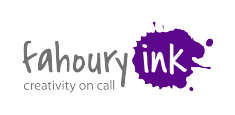Without a doubt, Hamilton would’ve tweeted it:
If you don’t stand for something, what will you fall for?
Sprout Social research shows that 70% of consumers expect companies to take a stance on social and environmental issues.
Sure, it’s risky. Because we’ve all seen the fallout when attempts fail. Yet consider this:
Social causes can be the lifeblood of a company — especially when they don’t start from your marketing or PR department. Company founders can instill a social consciousness that becomes a genuine part of their brand identity.
Taking a sincere stand on issues that align with company values gains respect. But those stands can’t come out of the blue. Was it out of character for Ben & Jerry’s to post, “We must dismantle white supremacy”? Not at all. It spoke to exactly who we know and expect them to be.
So, where do you start?
Examine your motives
A company’s social stance needs to be organic, not simply a marketing grab. A one-and-done post exclaiming that “Black Lives Matter” can come across as exploitive and opportunistic. Know why? Because it is.
Social consciousness goes much deeper than that. And it starts way earlier in the process of building a company’s culture. If you’ve yet to develop a mission, vision, values (MVV) statement with your team, now’s the time to do it. Together, you can articulate what you stand for, and put a plan in place to reinforce it with your actions. That’s called brand authenticity.
Conversely, if you’re operating from a position of FOMO or “all the cool kids are doing it,” do your organization a favor and STOP. Do the work before you go public, or stay quiet. Anything else is disingenuous.
Walk the walk
If your MVV statement highlights issues like philanthropy, environmental responsibility or financial equity, what mechanisms do you have in place to facilitate change? That could look like paid days off to volunteer, a matching gift program for causes your employees are passionate about, subsidizing public transit expenses or incorporating financial wellness education into your benefit offerings.
Don’t make cleverness the goal
Your support of social causes shouldn’t be designed around winning a Clio. Cautionary tales abound about tone-deafness. Remember Pepsi’s genius video of Kendall Jenner at a protect march? The goal isn’t to show how creative you are — it’s about being true to your values.
More often than not, these steps will help mitigate the risk of taking a public social stance. Sincerity is never a risk.

